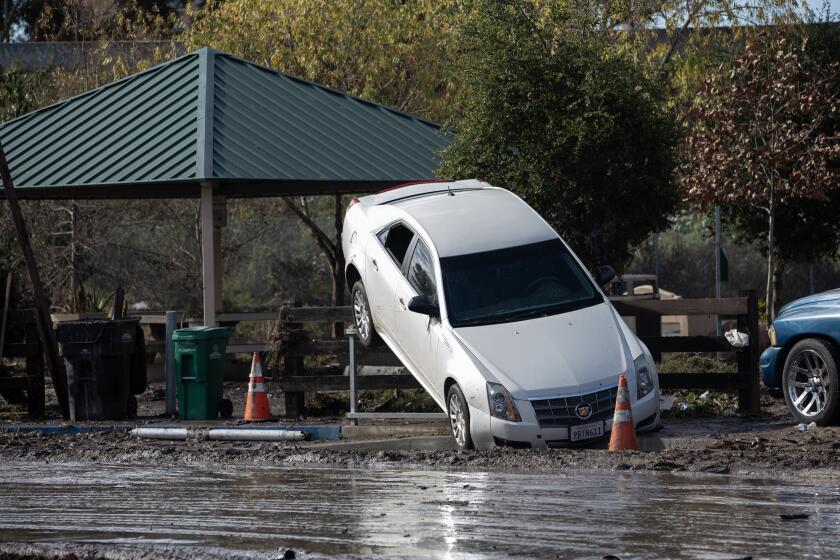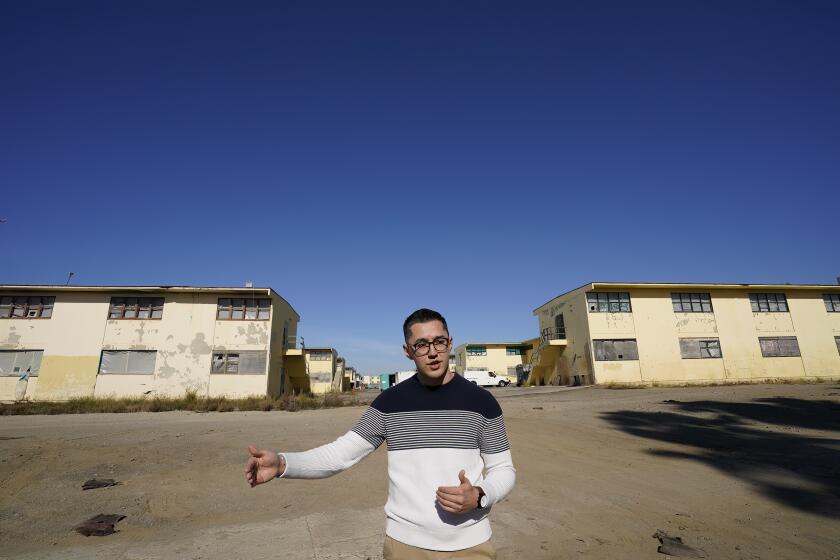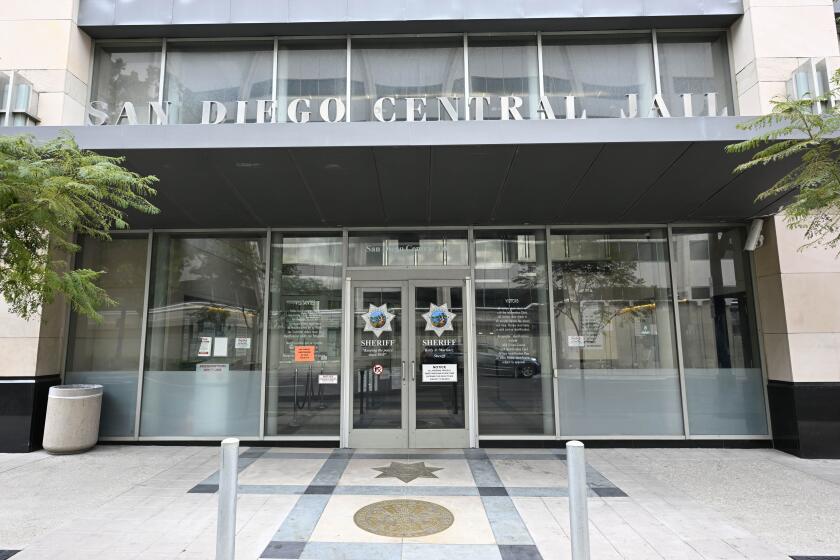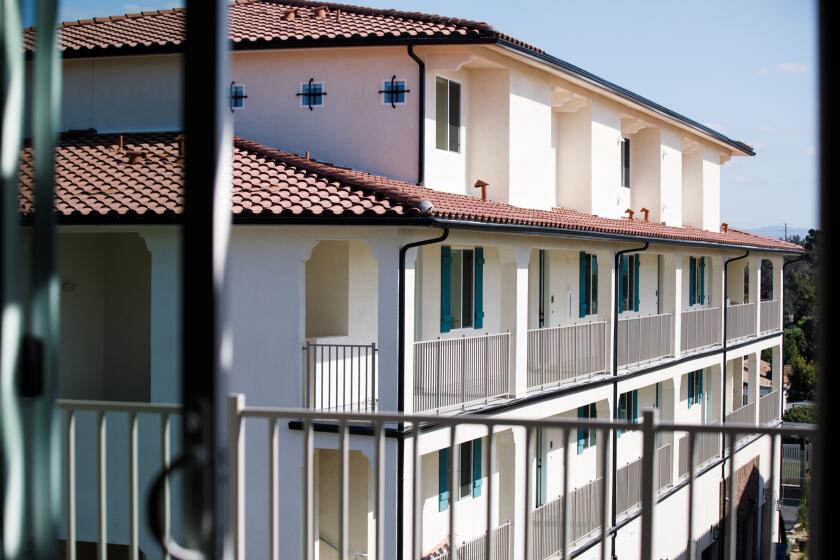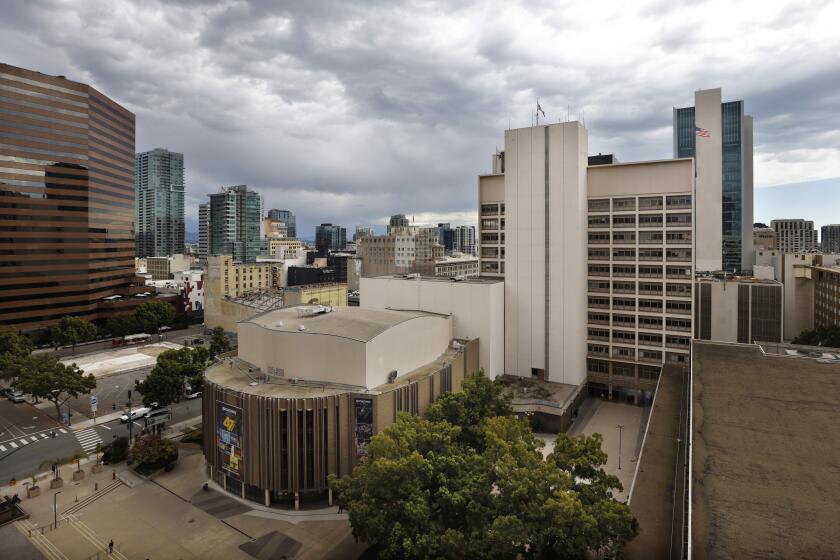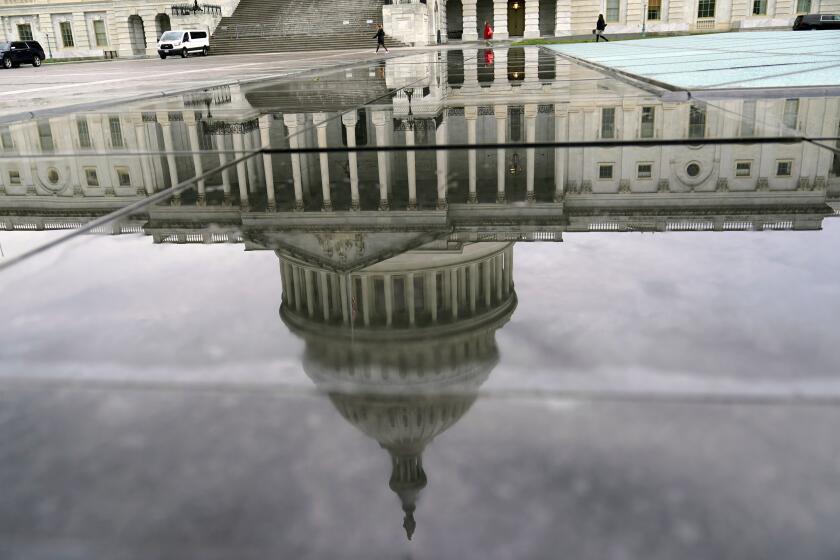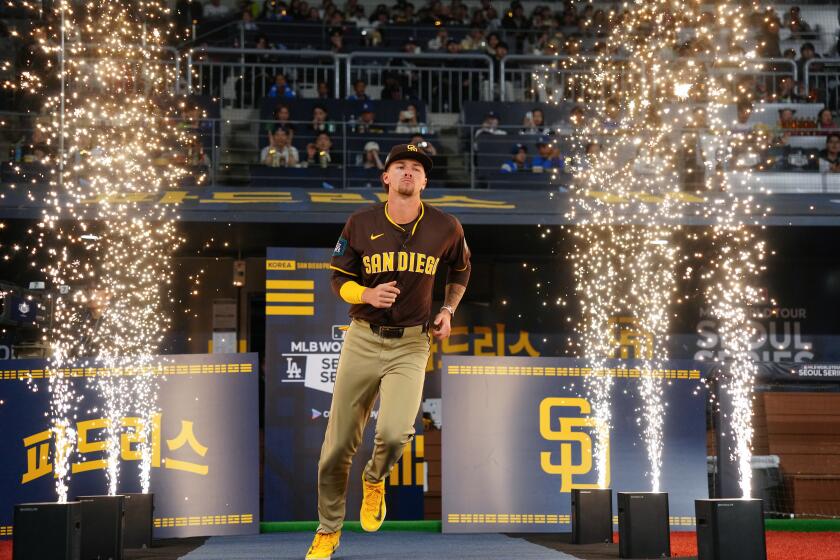Column: Win or lose on recall, California GOP likely faces a tough road ahead
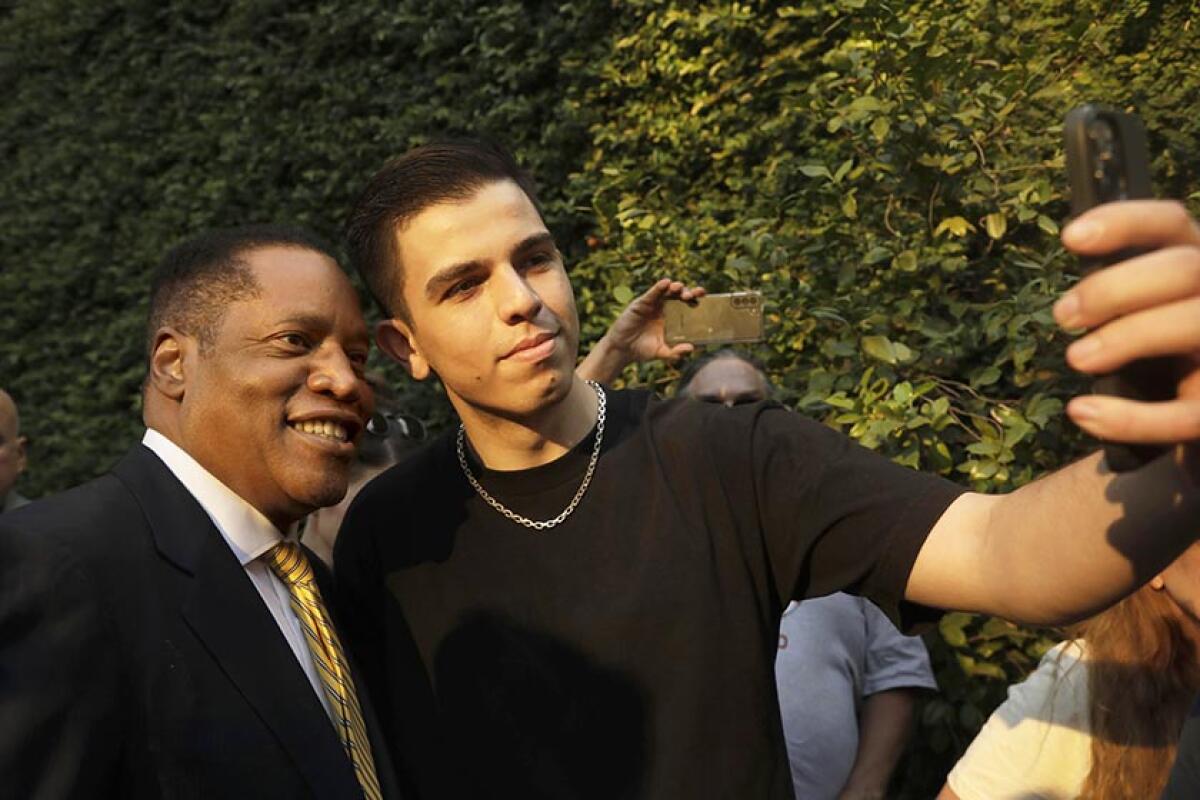
If Faulconer continues to fizzle and Elder becomes governor and/or party standard-bearer in 2022, GOP hopes for future gains could be diminished
Time is running out for Kevin Faulconer, and the future fortunes of the California Republican Party may be hanging in the balance.
If the former San Diego mayor fails to finish at the top of the recall replacement candidate field — and no poll shows he’s even close — the GOP potentially is faced with the prospect of falling even more out of step with the California populace.
This story is for subscribers
We offer subscribers exclusive access to our best journalism.
Thank you for your support.
So far, nothing seems to have dented syndicated radio talk show host Larry Elder’s status as the clear frontrunner. With a week and a half to go until the Sept. 14 election, that’s a problem for the GOP — whether or not voters remove Democratic Gov. Gavin Newsom from office. Recent polls suggest he’s likely to stay.
If Elder becomes governor or the party’s standard-bearer as a candidate in next year’s gubernatorial race, that could set back the state GOP that was poised to build on gains in 2020, particularly in congressional elections.
Elder’s conservative views and notoriety may have given him the solid backing in the mid-20 percentages that polls consistently have shown. The recall rules require a majority to oust Newsom, while the candidate with the most votes — which could be a small plurality — would take his place.
But Elder’s anti-abortion, anti-labor and, yes, anti-women comments are unlikely to win him a regular election majority in one of the nation’s bluest states. He further opposes vaccine and mask mandates that polls say are supported by most Californians.
If Elder is the Republican candidate on the ballot in November 2022, he’s almost certain to become a weight on Republicans running for Congress and the Legislature in purple swing districts with large suburban electorates that oppose many of his views. It’s not just that; his allegiance to former President Donald Trump will also come into play, as it has in the recall election.
There’s a lot of discussion about the potential for a constant battle between a Gov. Elder and the Democratic supermajorities in the Legislature, and the potential for lawmakers to simply work around him.
But a lot of what is going on in the recall campaign is about 2022. Clearly, the Republicans want — and may well get — Newsom booted from office this year. But the longer game was always part of the strategy.
In 2018, Republicans lost seven California congressional seats in a midterm election when Trump wasn’t up for re-election. He still was a motivator for Democratic voters, but his absence from the ballot depressed Republican turnout. Newsom was elected over Rancho Santa Fe businessman John Cox, now a replacement candidate, by nearly 24 points.
Last year, Republicans won back four of those seats and are hoping for more next year to help wrest control of the House from Democrats. Further, they are seeking to break Democrats’ two-thirds majority in the Legislature, which allows them to pass budgets, raise taxes and override a governor’s veto with no involvement by Republicans.
To do all that, the GOP needs a candidate at the top of the state ticket whose positions may appeal to a broad spectrum of voters and thus attract money and, ideally, create enthusiasm by suggesting they have a legitimate shot in the election for governor.
Enter Faulconer. Scintillating he’s not, but he does have those political characteristics. Since he first became San Diego mayor in 2014, he had been seen by Republican leaders as helping bring the state party out of the political wilderness to become, if not controlling, at least relevant again.
With a profile as a climate-change warrior who supports abortion rights and gun control, Faulconer was elected and governed in a Democratic city with, in the view of supporters, a pragmatic approach. Detractors said he tended to make decisions with a finger in the wind.
But running for governor, he initially sought to appeal to conservatives who were suspicious of his moderate-to-liberal image. To do that, he performed some awkward political backflips. In 2016, he famously said he would never vote for Trump. After the 2020 election, he broadcast that he had voted for Trump, which followed a high-profile 2019 meeting with the then-president in the Oval Office.
During the campaign, he continued to veer to the right and showed up at the “Freedom Fest” staged in the Central Valley by Rep. Devin Nunes, R-Visalia, who is loathed by most Democrats.
Yet he continued to fight for conservative terrain with Cox, until Elder came in and grabbed most of it. Faulconer has since shifted mightily. He’s still advocating his proposed tax cuts and compassionate-but-tough stance on homelessness. But now he seems set on appealing to Democratic or Democratic-leaning voters.
He has pitched programs such as improved parental leave and child care, along with pay equity for women. He relentlessly criticizes Elder for denigrating comments about women, with a nod to accusations by the frontrunner’s ex-fiancée that Elder produced a gun during a heated argument with her while he was high on marijuana.
Yet, recent polls by the Public Policy Institute of California and The San Diego Union-Tribune conducted by SurveyUSA show Elder with 26 percent and 27 percent support, respectively. Faulconer is at 5 percent in each poll, up or down a point or two from others.
With some slight variations, that’s been the polling status since Elder got into the race in July.
Significantly, both SurveyUSA and PPIC has the recall behind. That’s a flip for SurveyUSA, which suggested its earlier methodology was faulty because it changed it this time around. PPIC, however, now has had the recall behind in three consecutive polls, almost by the same margin. This one has voters wanting to keep Newsom in office 58 percent to 39 percent.
Still, Newsom is far from out of the woods. The coronavirus pandemic is unpredictable, wildfire-fighting budgets and brush-clearing efforts weren’t as advertised, the state’s unemployment system is still a multibillion-dollar mess and homelessness remains at crisis levels around the state. Then there’s his infamous dinner at the high-end French Laundry restaurant during the pandemic when he was telling Californians to stay at home.
Also, the difficulty in assessing who is likely to vote in this unusual election has pollsters cautious.
Yet the PPIC poll showed Newsom’s job approval rating at 53 percent among likely voters, which has held steady throughout 2021. His handling of the coronavirus outbreak received 58 percent approval. That’s significant because not only is COVID-19 the top concern among voters, but criticism of his response to the pandemic drove the recall early on.
Not long ago, it seemed Republican leaders were on a roll. They gained congressional seats, had a gubernatorial candidate more in sync with the spectrum of Californians than the shrinking GOP base and a recall process that gave them a unique advantage.
Faulconer and party leaders have said for Republicans to move forward in California, the state GOP needed to focus on economic and quality-of-life issues — such as housing costs, water availability and the environment — and move away from divisive social issues.
Now they may have a likely leading candidate next year who is knee-deep in the culture wars and potentially a Democratic incumbent who may be surging toward re-election after thwarting the recall.
Get Essential San Diego, weekday mornings
Get top headlines from the Union-Tribune in your inbox weekday mornings, including top news, local, sports, business, entertainment and opinion.
You may occasionally receive promotional content from the San Diego Union-Tribune.

